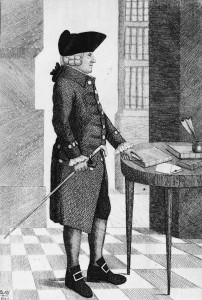And in posing this question Professor Molly Worthen argues dyspeptically in her latest article for why more liberals should be attending ‘Great Books Camp.’ A careful study into the history of one’s own ideas, Dr. Worthen suggests, would allow us to put not only Donald Trump in perspective, but more generally to engage with conservatives instead of automatically gainsaying anything that smells of them. Over the course of her article Dr. Worthen manages while firing in all directions to implicate liberals, conservatives, and
The hyperspecialized, careerist ethos of mainstream universities has served them just as poorly as it has conservatives.
If the Trump administration does what Mr. Trump has promised to do, it will smash conservative orthodoxies like free trade and the evils of government spending. It will embrace primitive nationalism over humanitarian ethics. Its enemies, conservative and liberal, will find themselves having to make principled cases for positions they thought were settled long ago.
As remedy, liberals should emulate conservative turnstiles that seek to indoctrinate the their students in the history of ideas that they will come to discover are their own.
There is another insight here: the power of teaching the canon. Most of these programs conceive of the canon far too narrowly, but the canon is an elite debating society that anyone can join. It shows students that the struggle for freedom and justice began long before the 1960s, and that this deep history lurks beneath todays policy debates.
…
Instead of mocking conservatives ideological echo chambers and self-regarding fantasies, progressives should learn from them. For one thing, higher education should include a bit of self-regarding fantasy. It allows 20-year-olds to turn off their phones, try on the ideas of civilizations greatest minds, and practice interacting as adults.
But
Unfortunately, at most universities, studying political philosophy has become a form of countercultural rebellion, a discipline marginalized by courses in supposedly practical subjects like business and communications. Campus activists may learn organizing strategies and the argot of identity politics, but few study the history of their own ideas.
One problem here is the absence of any recommendation that students also engage with the history of ideas not supposedly their own. The conservative think tanks and programs that Professor Worthen offers for our admiration are not engaged in the benign business of promoting values associated with free-thinking and intellectual humility, but one which seek to build ideological stalwarts not courteously compromising but obstinately resistant.
Read her full post at The New York Times

